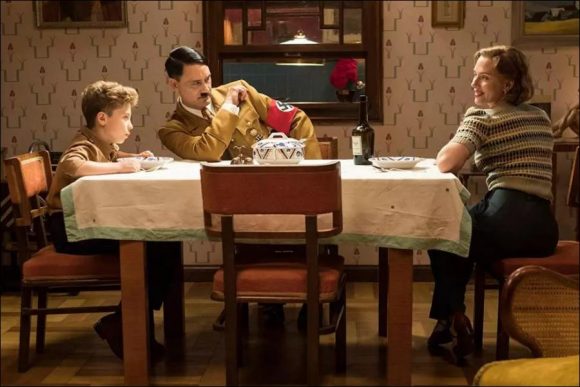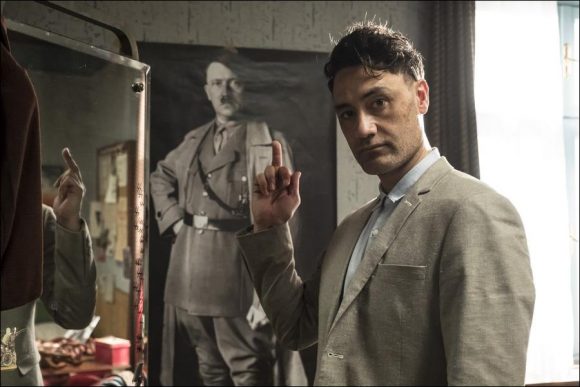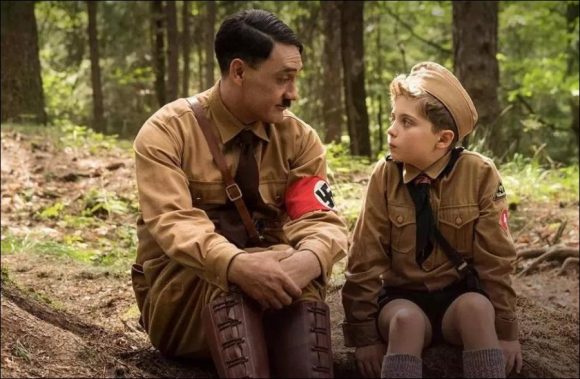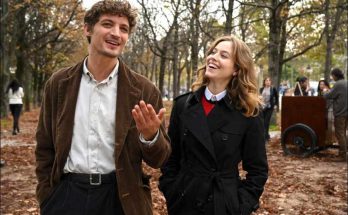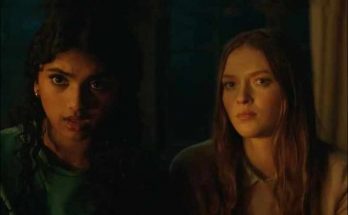Taika Waititi, who has developed a unique style with What We Do in the Shadows (2014) and Hunt for the Wilderpeople (2016), is integrating his sense of humor into the Nazi world this time with six nominated Oscar nominations, Jojo Rabbit. Adapted from the novel of Christine Leunens and gives a satirical look to Nazi Germany, Adolf Hitler, Jews, Antisemitism and the “little monsters” created by German nationalism in the process, the film manages to write its name among the best of the year.
Liah Greenfeld makes an introduction to the German Nationalism section of his book “Nationalism: Five Ways to Modernity”. Quoting from Marx, Arndt, Humbolt and even Fichte, the author continues with the words of Fichte: “But German alone… can be a patriot; he alone can embrace all humanity for his country sake; The patriotism of people from every other nation who confronts him now has to be egoistic, narrow-minded and hostile to the rest of humanity ”
In fact, Johann Gottlieb Fichte, who died in 1814, summed up the first form of German national consciousness, born of the liberation struggle against the Napoleonic domination, from which we can speak of its existence in 1815. Despite its existence on the European stage since the 1800s, Germany, which emerged quite late with the fall of Prussia and the disintegration of the Empire, but developed much faster than other countries that adopted this idea, also placed antisemitism at the same speed. Although antisemitism has become completely different with the brutal crimes of humanity committed by the National Socialist Party, “Jews, French and Ignorants” started to be seen as opponents of the German nation in the first years of national consciousness.
With the aggressive attitude of the National Socialist German Workers Party, the German Socialist Party, which, strangely, created such a fast nationality and established its origins mostly on “reaction”, and which strangely came to the fore on January 30th, was irreversible. they brought it to the point and created a generation of “patriotic, narrow-minded, egoistic and enemy” just as above. Here is Jojo Rabbit’s panorama of this generation with a cynical language but also with a tragic narrative.
Of course, many films were made about the genocide that took place during the Second World War and the human stories that took place during this period, including the eyes of the children; Hitler has also been an element of humor many times before, but in the memory of a child, the Hitler figure and his Nazi “madness” have been filmed with such an extraordinary and cleverly constructed humor and, indeed, tragedy…
Jojo Rabbit creates such an absurd, so surreal world through the character of 10-year-old Johannes (Jojo) and blends these two types so balanced that you are surprised where to laugh, where to cry, or what dialogue to emphasize. As in a simple example that reflects the German national consciousness I mentioned above, the film works with the little monsters created by the Nazis with their own hands, and their world with so many point-and-shoot animations, so I think that the children tend to be violent and good / evil rather than turning it into a pure Nazi / Hitler satire reading. I think that the concepts of uncertainty should also be evaluated.
Despite being an English-speaking film, Jojo Rabbit opens the German version of The Beatles’ I Want To Hold Your Hand, as if he wants to show off his absurdity from the beginning, and introduces his audience to Jojo after seeing the enthusiastic Nazis of Hitler Germany. Jojo is a child trained in the hands of the Nazis, militaryized in a way, brainwashed and turned into an anti-Semitic machine. His mother, Rosie (Scarlett Johansson) is a true anti-Nazi guy who secretly housed a Jewish girl in her home, but inevitably pro-Nazi in her discourses.
Even though they sometimes disagree with Jojo – because Jojo is an inexcusable Nazi fanatic – he usually tries to maintain his current position by hiding his thoughts from him. Like every boy, Jojo’s bond with his mother is very strong, and the real thing that turns him into a final comes from this relationship with his mother. Of course, the communication with Jewish Elsa has also contributed greatly, but to me, the most powerful transformer, the mother and the war they end up with.
At this point, the most helpful figure to read Jojo as a character is the Hitler perception created by Jojo in his dream… Hitler, who is Jojo’s closest friend, always supports him in his hardest times and ensures that he does not lose his Nazi faith. This figure of Hitler, portrayed by Taika Waititi, is actually a reflection of Jojo… It is also depicting Jojo’s view of himself, saying “Yes” to the question “Am I ugly?”. Hitler, who acts just like a child, constantly dances and even nurtures the true sense of humor in the movie, both carries a child innocence and symbolizes that children can do it in situations of tendency to violence and the concepts of good / evil.
For a while I have been focusing on children and their pure selfishness, their relationship with pure evil, apparently caused by education, when Jojo is confronted with another evil, since I have been thinking about the fact that they are easily unaware of the limits of the concept of evil. Children who enter the Nazi camp, including Jojo and even their friend Yorkie, are prone to violence because they grew up with the concepts of goodness and evil without learning the framework of these concepts correctly. Here is a sequence where we actually get the signals that Jojo will turn out to be a blind fanatic like other children.
At the beginning of the movie, Jojo cannot kill a rabbit during the training and states that Jojo will preserve the innocence he has hosted in his friend Hitler despite the inevitable development of evil. For me, the most crucial scene of the film was the sequence in which children burned books as a result of this concept confusion. When humankind is free from education, from the separation of good / evil, just like in the God of Flies, it can become wild, or, in Nazi Germany, with a discourse like George Orwell, individuals who believe that ignorance is virtue, evil is good, peace is war, and Jojo Rabbit never expected it. reflecting on the screen with impressiveness.
The film, on the other hand, also allows a Freudian reading over the issue of tying a shoe, and explains Jojo’s love for the Oedipal of his mother over his new love, which, in his absence, both treats him like his mother and hugs him because he has no other cure. We can even deduce this idea from dancing with his mother, and then in a similar position with Elsa.
I think the scene that summarizes the humor and dose of the film was that Hitler appeared in his head in the imagination of Jojo after he shot himself. Frankly, this was the detail that made me laugh with what Nazi officer Captain Klenzendorf, portrayed by Sam Rockwell, did. If it is interesting, the film, which often pushes the limits of humor and sometimes even wanders in dangerous waters, sometimes leaves its audience in dilemma and may even cause confusion between laughing and not laughing. This is exactly why Jojo Rabbit, who ignores the rules of political correctness, cannot escape criticism frequently.
When it comes to acting… The biggest chance of the movie is definitely Roman Griffin Davis, who made his first performance. Director Taika Waititi also supports her in the funniest way possible with her role as Hitler, but I think that Scarlett Johansson’s role as Oscar-nominated for Best Supporting Actress is a bit exaggerated. It certainly does a good job, but it is not possible to see its giant state in a Marriage Story.
Finally, I must underline that the nomination for the Oscars in six categories, Jojo Rabbit, was nominated for Best Film, but it did not make Jojo Rabbit bad, but rather he would conquer your heart with his clever humor. I say don’t miss the opportunity to experience in cinema.
Jojo Rabbit (2019)
Directed by: Taika Waititi
Starring: Roman Griffin Davis, Thomasin McKenzie, Taika Waititi, Rebel Wilson, Stephen Merchant, Alfie Allen, Sam Rockwell, Scarlett Johansson, Judith Georgi, Victoria Hogan
Screenplay by: Taika Waititi
Production Design by: Ra Vincent
Cinematography by: Mihai Mălaimare Jr.
Film Editing by: Tom Eagles
Costume Design by: Mayes C. Rubeo
Set Decoration by: Nora Sopková
Art Direction by: Ondrej Lipensky
Music by: Michael Giacchino
MPAA Rating: PG-13 for mature thematic content, some disturbing images, violence, and language.
Distributed by: Walt Disney Pictures
Release Date: October 18, 2019
Views: 411
